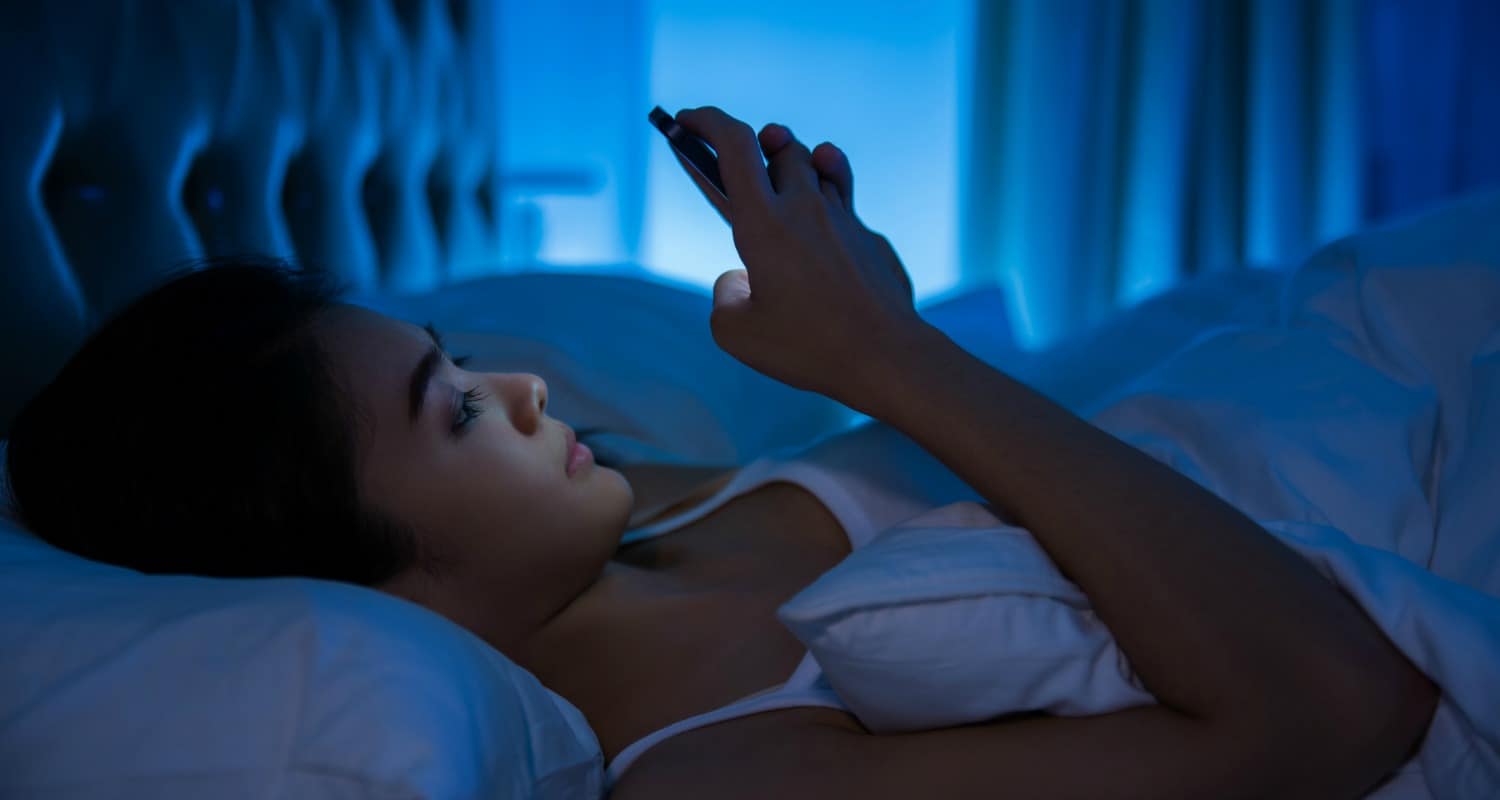What We Know About Blue Light and Sleep

Sleep is a pillar of optimal health. But, individuals are sleeping much less these days than they were in the past. There's also a decline in sleep quality. Poor sleep is linked to depression, heart disease, obesity, and type 2 diabetes.
The use of electronics and artificial lighting at night could contribute to sleep issues. These devices emit blue wavelength light that can trick your brain, making it think it's daytime. Research suggests blue light before bedtime disrupts the natural sleep-wake cycles of your brain, which are critical for optimal health.
What is Blue Light?
Not all light colors have a similar effect. Blue wavelengths can actually be beneficial during the daytime because they boost:
- Reaction times
- Attention
- Mood
But, they can also be disruptive at night. And, the rapid increase of energy-efficient lighting and electronics with screens is increasing blue wavelengths exposure, particularly after sundown.
How Blue Light Affects Sleep
The reason blue light is very problematic is because it has a short wavelength that impacts your melatonin levels more than other wavelengths do, according to the National Sleep Foundation. LED lights and light from fluorescent bulbs can produce the same effect.
Usually, your brain's pineal gland starts releasing melatonin a couple of hours before you go to bed, and this melatonin becomes highest during the night. When you read on a device that gives out blue light (i.e. a tablet instead of a hardcover book) in the evening, it takes you longer to get to sleep. Also, you experience less REM sleep (when you're dreaming), and wake up feeling sleepier, despite sleeping for eight hours.
A Harvard study showed a possible connection between a little bit of light and diabetes and potentially obesity. Ten individuals were put on a schedule that slowly shifted their circadian rhythm timing. Because of this:
- They had an increase in blood sugar levels
- They were thrown into a prediabetic state
- Their leptin (hormone that leaves you feeling full after eating a meal) levels went down
When your body is exposed to only the sun's natural light, your brain's hypothalamus area sets its sleep patterns based on when it's light outdoors, and when it's dark. The retina of your eye detects light, sending signals to your hypothalamus (a small region of your brain that plays an important role in functions like regulating body temperature and releasing hormones).
As it begins getting dark outdoors, your hypothalamus signals your body to begin creating melatonin and other sleep hormones, as well as drop your body temperature to get you prepared for sleep. When your hypothalamus senses light in the morning, it tells your body to warm up, and begin producing hormones such as cortisol which wakes your body up.
When you add artificial light to your day, the natural rhythms of your body become confused. Now, your retina can receive light at any time of day or night, therefore your body really doesn't know when to start getting ready for sleep. The Endocrine Society's Journal of Clinical Endocrinology & Metabolism published a study that found exposure to room light at night, when compared with dim light, suppressed melatonin by approximately 85 percent in trials.
How to Reduce your Blue-Light Exposure Before Bed
If you can't turn your digital devices off, here are some suggestions:
- Dim your devices' brightness
- Use programs that filter short-wavelength light out at night
- Use modern technologies that provide various settings like reversing the print so the text is light and the page is dark
Obviously, the best answer is to just avoid your devices before you go to sleep.
Another potential solution that could help decrease how much blue light you absorb from your digital screens are "blue blockers" — blue light filter glasses.
Blue light filtering glasses originated in 1986 from the NASA space program, according to BlueBlockers.com. The astronauts wore them to shield their eyes, and protect them from strong UV rays. A California sunglasses manufacturer noted this, and designed sunglasses that didn't just shield UV rays, but also blue rays as well. Now, companies all around the world are marketing them.
The Help of Light Therapy
Research in the 1980s found light does have some clinical benefits on melatonin. Since then, light therapy has been used effectively in treating various conditions like:
- Sleep disorders
- Age-related dementia
- Depression
- Eating disorders
Being exposed to light in the daytime can help improve your mood, increase your energy levels, and improve your cognitive performance.
- Individuals perform better on physical and cognitive tasks when it's light, compared to when it's dark, independent of whether they're sleepy. It only takes one hour of bright light a day to create these effects.
- Brain imaging evidence shows the waking brain is more active when there is bright ambient light. Even if you're not conscious of it, and find bright light to be distracting, you're more mentally quick-witted in bright light.
Exposing yourself to light in the daytime can help you fall asleep at night because your body recognizes darkness's contrast in the night, and begins signaling the production of melatonin.
- Being exposed to midday light increases the release of nighttime melatonin. Your circadian phase doesn't shift, which provides the biochemical basis for the claim of outdoor exposure in the daytime could help you fall asleep during the night.
- A study of individuals who worked in office buildings found those individuals working in windowless environments appeared to have lower sleep quality test scores than those who could see the sun while they worked throughout the day.
Remember, while cutting back on your blue-light exposure can help with sleep, don't forget to get some sunshine, and make sure you're exposing yourself to enough daylight in the daytime to help improve your sleep at night, and give you a boost in attention and mood the next day.







